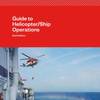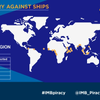CSIRO, BHP Billiton Join Forces in Marine Research
The World Heritage Listed Ningaloo Reef in Western Australia will be the focus of a new marine research partnership between CSIRO and BHP Billiton Petroleum announced today.
Ningaloo Reef is the largest fringing reef in the world, extending 300 kilometres along the North West coast of Australia.
The five year, jointly funded A$5 million research program will include both deep and shallow reef research, turtle and shark tagging, a PhD scholarship scheme and opportunities to engage the local community, including BHP Billiton Petroleum employees, in Exmouth, WA.
Minister for Industry and Science Ian Macfarlane, joined CSIRO Executive Director Environment, Dr Andrew Johnson, and BHP Billiton Petroleum General Manager, Doug Handyside to launch the partnership in Perth today.
Mr Handyside said the investment in marine science would help the oil and gas industry to better understand the reef and help target conservation efforts.
“We are dedicated to ensuring the knowledge on which we base our operational decisions is entrenched in science,” Mr Handyside said.
“The partnership between CSIRO and BHP Billiton supports this valuable scientific research to provide baseline data on the condition of the ecological values of the reef, which will allow assessments over time to determine any changes.
“This enables us to uphold our commitment to operate in the most environmentally responsible manner possible.”
Dr Andrew Johnson from CSIRO said the research would deliver the fundamental knowledge required to manage increasing and varied uses in the Ningaloo region.
“Our research presence at Ningaloo is now entering its tenth year, so we are very aware of the reef’s many uses – it is the way we manage and balance these different uses which is key to sustainable development,” Dr Johnson said.
“We intend to work closely with the Exmouth community throughout the project, to understand their needs and to build their knowledge of the local marine environment.”
The program follows the successful BHP Billiton Petroleum investment in the Ningaloo Atlas Research program, and builds on CSIRO’s extensive decade-long shallow coral reef and fauna research and turtle tracking using satellite and acoustic technology.
The funding from BHP Billiton forms part of the company’s voluntary community contributions, and is not linked to any statutory requirement or licensing conditions.
“Our environmental commitments go beyond our operational footprint to support areas of national and international conservation significance, aligning with our company’s strong focus on sustainability,” Mr Handyside said.
The five-year research program, of which BHP Billiton will commit A$2.6 million, will commence in early 2015.













